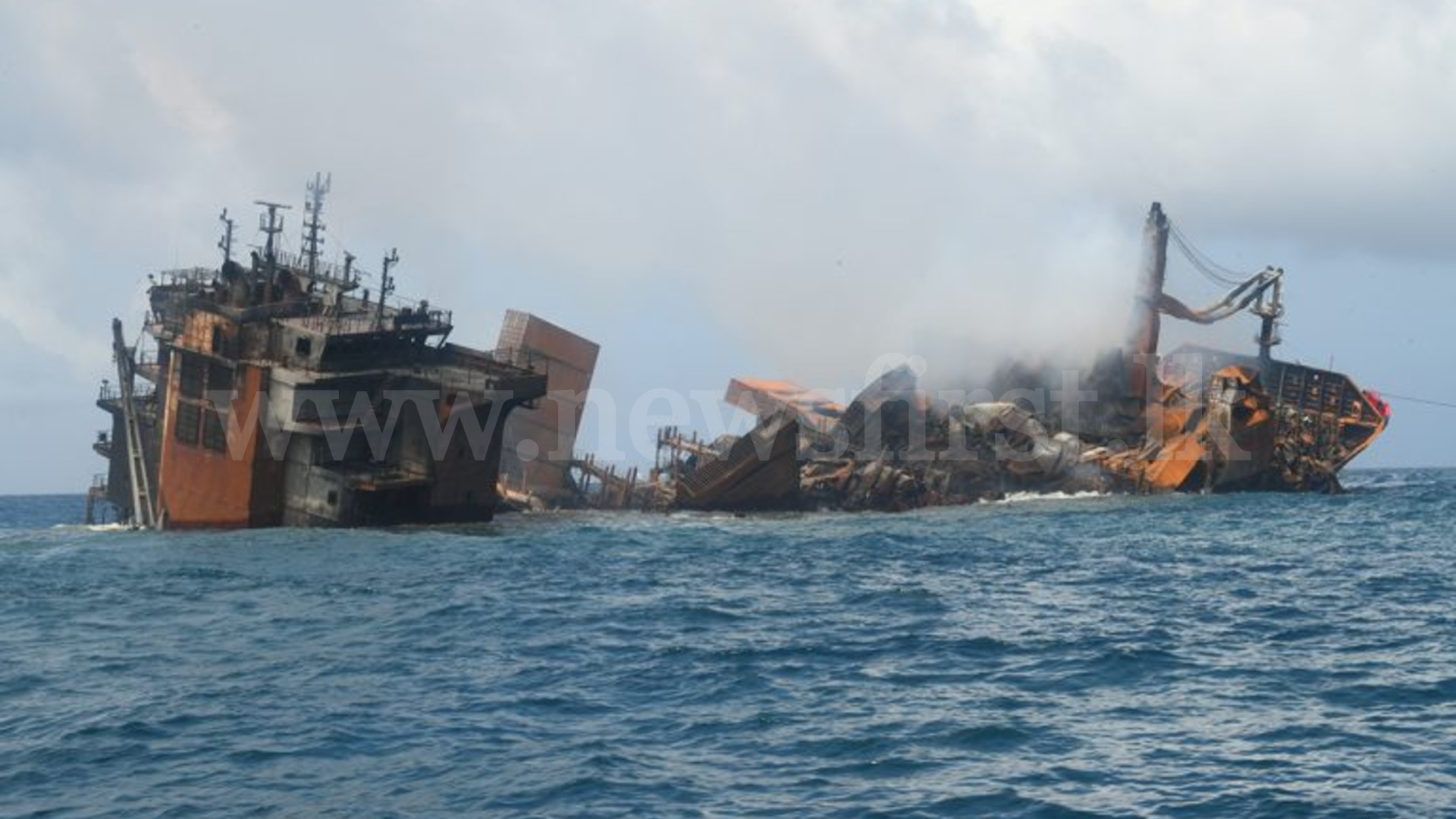.webp)

The Fox guarding the Henhouse- How ‘Xpress Pearl’ claim could shortchange Sri Lanka
COLOMBO (News 1st); As the Xpress Pearl disaster continues to bring unwanted global attention to Sri Lanka, the wrecked ship now looks to be taking its toll on marine life with multiple incidents of dead sea-turtles and dolphins washing up on the country's shores within a 24-hour period. But what is the exact state of the damages claim and will Sri Lanka be compensated adequately for what is its worst maritime disaster in recent history? Here is the current State of Play.
At the time of writing, ‘X-Press Feeders’ - the operators of the X-Press Pearl have appointed ITOPF and Oil Spill Response to work alongside Sri Lankan authorities to control marine pollution. These ‘appointments’ have raised serious concerns as they were not made by the Sri Lankan government.
Sri Lanka's Marine Environment is governed and administered by the Sri Lankan Agency named The ‘Marine Environment Protection Authority’, MEPA. It should technically be MEPA that should decide on what companies or organizations are to be called in to support the on-going efforts, while the owners reserve the right to have their representations. Insurers will face hull and machinery, cargo and liability claims, although there is still a lot of uncertainty about the quantum of the loss.
The vessel itself was only three months old; it is unclear how much the hull was insured for, and which company insured it.
Rob Hawes, Head of Marine at loss adjuster Crawford & Co. estimated that the cargo loss could be between $30 million and $50 million, based on the X-Press Pearl's 2,700 container capacity and an assumption that a container houses an average of $15,000 to $20,000 of goods. He said he thought the loss would be spread among a "large group" of insurers in London, Europe and Asia, and that fire and explosion losses would be covered under "pretty much every cargo insurance policy that's out there."
Marine mutual insurer The London P&I Club, confirmed in a May 26 statement that it provides specialist marine liability cover, known as protection and indemnity, or P&I, to the X-Press Pearl.
But the real question is calculating the environmental impact of the blaze, which will have significant bearing on the size of the P&I claim. A "serious pollution incident" could lead to the claim swelling to "potential hundreds of millions" of dollars, according to Hawes. The vessel sinking in deep water, well away from land, could be a better outcome for the P&I insurer than saving it and bringing it back into port because of the heavy clean-up costs, said Hall. This however has not happened, with the vessel now destined to be a permanent feature of Sri Lanka’s Western Sea, with the potential to cause devastating pollution for an unknown period of time.
What does this mean for the Sri Lankan claim for what the X-Press Pearl caused to its coastline and marine life?
For the disaster caused by fire and sinking of X-Press Pearl, by accepting the appointment of ITOPF and OSRL, the Government of Sri Lanka will be presented by a situation akin to a fox guarding a henhouse. Both ITOPF and OSRL are designed to protect the interests of shipowners and energy corporations rather than the environment and shoreline of Sri Lanka.
Oil Spill Response Limited (OSRL) is a British firm founded in 1985. Shareholders are all major oil companies and the Board Members are from petroleum companies. The International Tanker Owners Pollution Federation (ITOPF) was established in 1968 and Board Members are the ship owners and insurance companies.
This is a huge cause for concern for Sri Lanka as these two bodies would work for the interests of the ship owners and companies and not in the interest of Sri Lanka, as they are appointed to this particular disaster by the owners of X-Press Pearl. The government of Sri Lanka has every right to decide an environmental company of its own choosing and determine the requirements of highest standards for wreck removal, shoreline clean up, and waste management to P&I club and the ship owner. Receiving dictation from the Insurance Club and the ship owner could multiply the environmental and economic loss for Sri Lanka.
It is Sri Lanka that will have to face the debilitating impact of this disaster for years to come. That should be the foremost concern of the government, and a priority in the minds of the public who are following the developments of this disaster with interest and concern.
Other Articles
Featured News





.png )






























.gif)